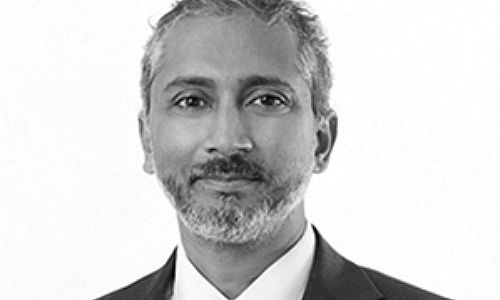A long-running criminal investigation into Pictet, Zuercher Kantonalbank and HSBC in Switzerland appears to be standing still. U.S. lawyer Milan Patel tells finews.com that U.S. officials are preparing to close out the probes as soon as next month.
Milan Patel, the U.S. has finished its sanctions for a second category of Swiss banks for helping tax evasion. What happens now?
Now that the category 2 banks are done, the DOJ has turned its attention to category 1 banks. I’ve seen movement with those: I’m aware that the DOJ is having discussions and trying to close them out. I imagine that by the end of this year, the DOJ would like to at least begin closing out the first category. We know they are having discussions right now, so they are absolutely reaching stages with several banks to finalize the numbers.
So it all comes down to money?
Yes, I anticipate it will come down to numbers with the first category of banks. It’s highly unlikely they will be prosecuted. It’s not in the DOJ’s best interest to put banks out of business. They just want to extract a penalty and hopefully teach the banks a lesson about their behavior in the future.
So cases are moving forward despite changes at the DOJ after Donald Trump’s election?
Absolutely. That is one of the big misconceptions about U.S. politics: people think that when a new administration comes in, priorities shift. Yes, maybe there are high-level policy decisions that filter down. But the Swiss bank issue is on-the-ground pursuit of non-compliant U.S. taxpayers and the banks which allegedly assisted them. The DOJ would have to be suicidal to want to change that policy.
With the first category now finally nearing a settlement, what is next?
I think other offshore havens such as Singapore will be next in line. Swiss Life said recently it has been contacted by the DOJ over insurance wrappers it issues from Liechtenstein and from Singapore. I think we’ll see more of this, whether it is insurers or wealth managers.
So Switzerland can breath easy if the U.S. is busy going after other havens?
Not quite! The next big issue we see with Swiss banks is the SEC [Securities and Exchange Commission]. The banks have been advising U.S. clients. Maybe that money is now declared to the IRS [Internal Revenue Service], but not all of the Swiss providers have registered as investment advisors with the SEC. Some are banks, some are independent asset managers and traditional asset managers. It’s going to be a problem.
Milan Patel is a former senior trial attorney for the Internal Revenue Service. He is now in private practice as the co-head of law firm Anaford's U.S. tax group in Zurich. Patel's practice focuses on private clients with an emphasis on international tax, trusts and estate planning, succession planning, and cross-border business structuring.



































